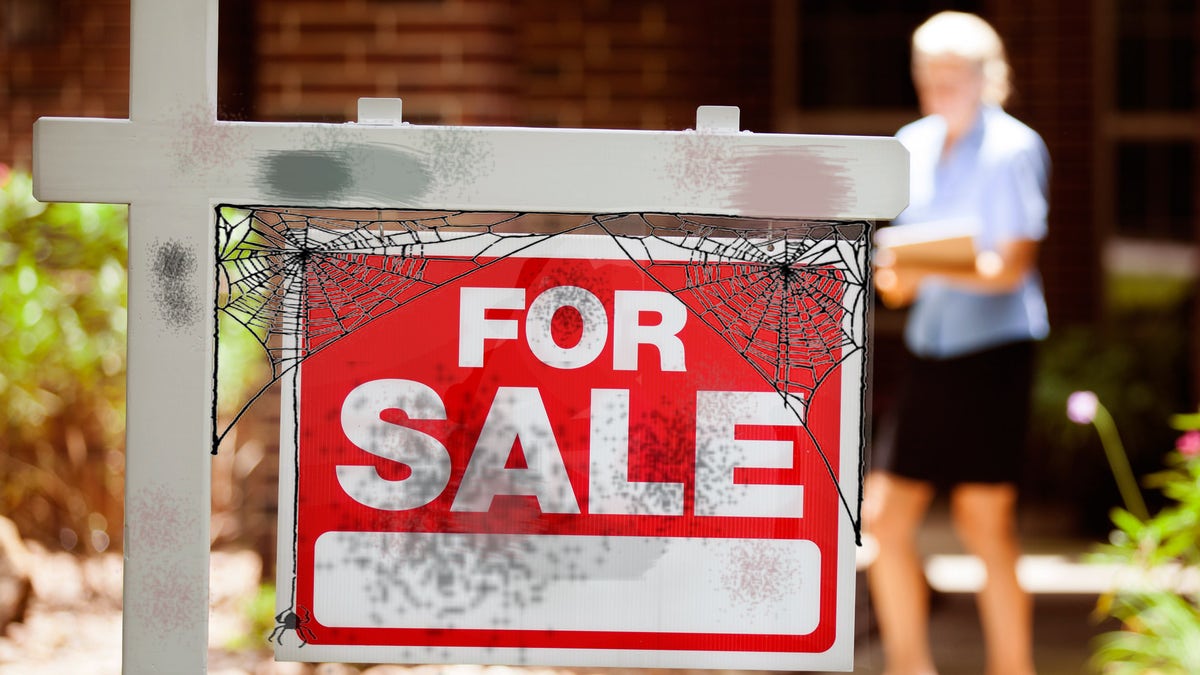
house-not-selling (Pamela Moore)
If you're selling a home, there's pretty much nothing worse than seeing your beloved place sit on the market with no offers in sight. And the longer it remains, the more you're apt to worry: Is something truly wrong with your home? When the weeks turn into months, it may be time to admit that something is amiss.
We're here to help you figure it out! Here are four common culprits and how to correct them.
But first: Maybe it's all in your head
For starters, don't exclude the possibility that you're just worried for nothing, and your home will indeed sell in due time. According to one study by data-gathering company Graphiq, a home stays on the market for an average of 73 days in the United States, but realistically, there's a wide range. Houses in the metro area of Birmingham, AL, sit on the market for an average of 144 days while homes in the San Francisco metro area last only 54 days.
"Take a look at your local market and compare the average days on market for a comparable home," says John Steele of Steel San Diego Homes in San Diego. If you're in an area where the average days on the market is 100 and you're only at 50, you might not have to worry about it. All you may need to do is sit back and wait!
Reason No. 1: Your listing pics are subpar
In the digital age, home buyers start looking online -- much like with modern dating. So photography is key to making a great first impression, with the most flattering pictures possible. If buyers aren't coming around to see your place and your pics leave a lot to be desired, hiring a photographer could help. Professional photographs "drastically improve the online presence of a listing and can immediately create more attention," says Patti Michels, a Realtor in Hinsdale, IL.
Costs vary, but a general ballpark for a standard shoot -- interior and exterior -- is around $250 to $500 or more, not including any extras like video.
Reason No. 2: Your home isn't prettied up
We're not saying your home doesn't look nice, but are there cracks in your driveway? Does your kitchen scream 1970s? If so, then you're sending out all the wrong signals.
"Think of it like dating," says Nicole R. Wilhelm of Sotheby's International Realty in Berkeley, CA. "When you go the first time, you expect your date to have showered and be dressed in their best." In home terms, that amounts to staging by a professional who arranges your home for maximum appeal.
Staging can help your home sell faster, too -- about 20% quicker than a home that isn't staged. Costs vary depending on the service. To give you a general idea, the National Association of Realtors found the median cost of staging a home to be $675. And once it's staged, do your part and keep it clean.
Reason No. 3: Your home is too … you
Hey, we're not judging you -- but buyers might. Your flamingo-pink porch and painted black bedrooms might be a bit, um, much for the typical home shopper. It's time for a candid talk with your Realtor about whether there's anything around the house you could do to make it more of a neutral backdrop for other people's home dreams.
You should also make yourself scarce, if not absent, when the property is being shown -- no matter how lovely and helpful you are, your presence can make sellers feel self-conscious or pressured to politely ooh and ahh rather than speak their minds.
Finally, make sure to make your house available for showings at times convenient for buyers -- not just for you. So expect to give up a few weekends for property browsers.
Reason No. 4: You priced it too high
If you've tried all of the above and still can't get a buyer, then what's wrong with your home may be the price you're asking for it. When it comes to homes that are stagnating, Alex Bracke, owner of the Alex Bracke Real Estate Group in Sterling, VA, says he makes one point clear to sellers: "I don't set the value of their home; they don't set the value of their home," Bracke says. "The market sets it."
Translation: The home is worth no more than what someone is willing to spend for it. So to stir up interest, reduce the price. And don't be coy -- slash it.
"In order to make a splash and get buyers excited, the price reduction must be significant," says Danny Batsalkin, CEO of TBG Homes Worldwide in Beverly Hills, CA. "Reduce the price by at least 5%, and 10% is even better."
A price cut doesn't even mean you'll take a huge hit.
"Just because a home's price is reduced does not mean that's the maximum it can sell for," says Michels. You'll hear from new buyers because your house will be in a new price range, and you might even get a bidding war that will bring the price back up to where you started.
-- -- -- -- --
Watch: Do You Need to Remodel Before You Sell?